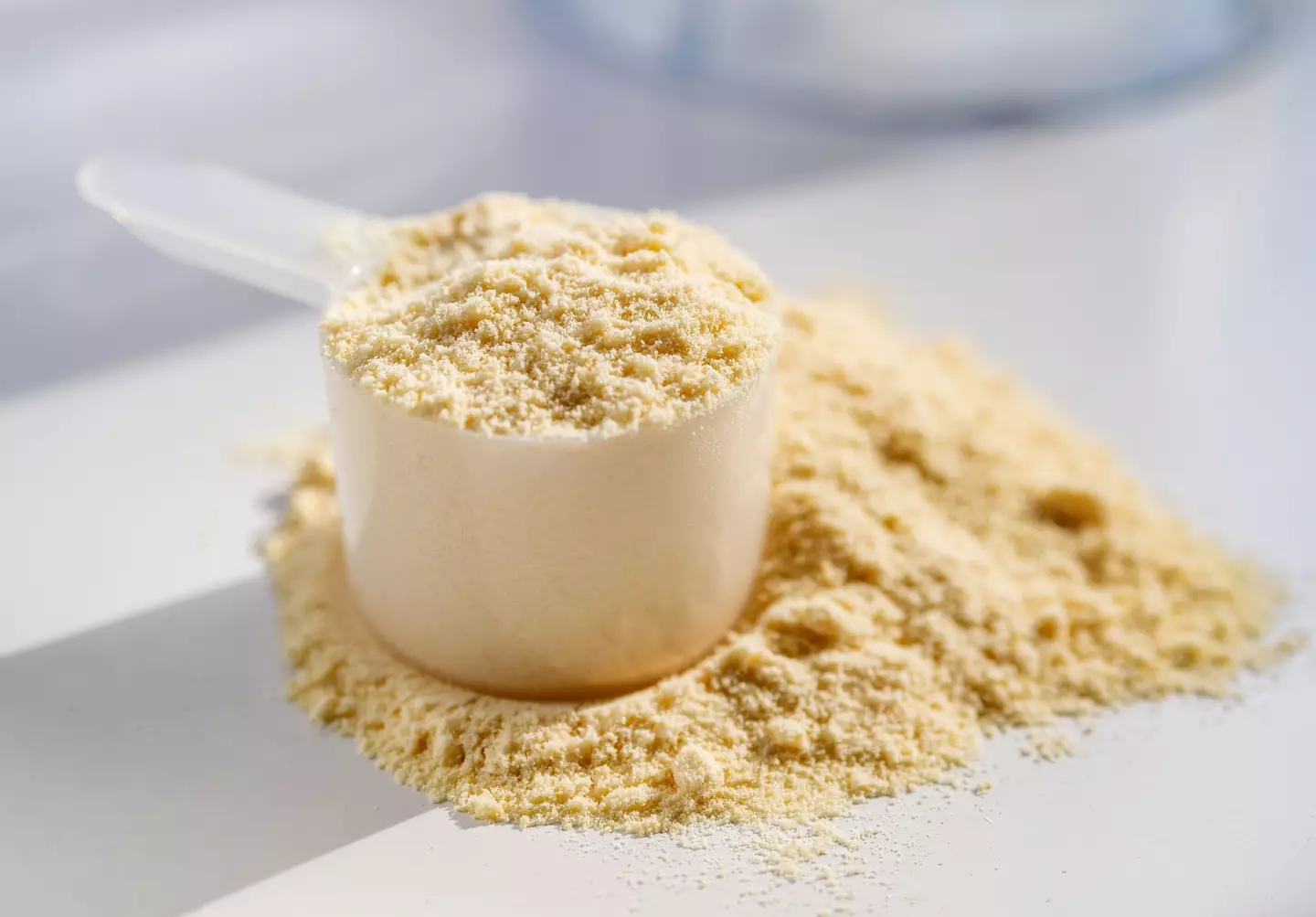
With Gen Z reportedly spearheading a massive influx of gym memberships, it’s safe to say that protein intake is on a tonne of people’s minds.
In order to make the most of your gym routine and build as much muscle as possible, it’s recommended by Healthline that we eat 1.2 to 2 grams of protein per kilogram of body weight.
If you weigh 70kg, that means you need to eat at least 84g of protein each day to give your body the building blocks for restoring and building muscle and connective tissues. If you opt for the upper bound to be on the safe side, that’s 140g of protein per day.

Advert
Now, that’s a fair bit of protein. The average chicken breast has 31g of protein, while the average egg has around 7g.
By adding more meat, nuts, beans and pulses to your meals, you should be able to tick your daily intake towards that 140g goal (assuming you weigh 70kg), but it’s easy to fall short. After all, eating the equivalent of four chicken breasts per day is no mean feat, and you’d still need more protein.
A popular way to push closer to or achieve those protein intake goals is to sup on protein shakes. The average one will provide about 20-30g of protein when mixed with water, and you can increase the protein content by opting for milk instead.
Whey protein powder is the go-to, and it’s both widely and relatively cheaply available.
However, research from Harvard scientists points to potential ‘hidden dangers’ of opting for protein powders, so if you’re on the Gain Train you’d best listen up.
Back in 2022, Harvard Health issued a warning over including protein powders in your diet.
"I don't recommend using protein powders except in a few instances, and only with supervision," said Kathy McManus, director of the Department of Nutrition at Harvard-affiliated Brigham and Women's Hospital.
McManus claimed at the time that we don’t know enough about the long-term effects of regular protein powder consumption and only had ‘limited data’.
"People with dairy allergies or trouble digesting lactose [milk sugar] can experience gastrointestinal discomfort if they use a milk-based protein powder," she added. I mean, yeah… obviously.
Now that the blindingly obvious is out of the way, let’s look at some of the more interesting elements of the study.
Harvard Health cited a report from the Clean Label Project covering potential toxins in protein powders that examined 134 products and 130 toxin types.
The study found that 'many protein powders contained heavy metals (lead, arsenic, cadmium, and mercury), bisphenol-A (BPA, which is used to make plastic), pesticides, or other contaminants with links to cancer and other health conditions'.

"Some toxins were present in significant quantities. For example, one protein powder contained 25 times the allowed limit of BPA," said Harvard Health.
Of course you can get protein from a tonne of sources, and you needn’t eat animal products to get it. Chickpeas, tofu, beans, lentils and lentils are all solid protein sources, although they’re not often as protein-dense as meat and fish.
